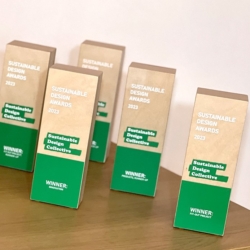January 25, 2024
Motherhood penalty means many women in tech leave due to care responsibilities
 Almost 40 per cent of female tech leavers cited caring commitments as a decisive factor in their decision to leave the industry, according to research by Tech Talent Charter. Work life balance was ranked the most important consideration, as working parents are juggling careers and full-time caring commitments, prompting the Tech Talent Charter and MotherBoard Charter to join forces to address maternity retention in tech. Women who have flexible working arrangements have a significantly higher retention than those who didn’t. These findings emphasise the damage that the ‘motherhood penalty’ has on the tech industry and its ability to keep women working within it. More →
Almost 40 per cent of female tech leavers cited caring commitments as a decisive factor in their decision to leave the industry, according to research by Tech Talent Charter. Work life balance was ranked the most important consideration, as working parents are juggling careers and full-time caring commitments, prompting the Tech Talent Charter and MotherBoard Charter to join forces to address maternity retention in tech. Women who have flexible working arrangements have a significantly higher retention than those who didn’t. These findings emphasise the damage that the ‘motherhood penalty’ has on the tech industry and its ability to keep women working within it. More →














 A new poll claims that over one quarter (26 percent) of employees in the UK do not trust their CEO to be open and honest, while 24 percent do not trust their senior leadership to do the same. According to the survey of 2,000 employees in the UK from Personio, transparency and employer-employee communication are pivotal to a positive employee experience and trust in the workplace. The research suggests that feeling unheard by leadership could be fuelling employees’ distrust. Over a quarter (28 percent) of employees surveyed say that they are not given a chance to share feedback to leadership on their experiences. Meanwhile, less than half (46 percent) of employees feel that leadership in their organisation actually listens and acts on any feedback when given from staff.
A new poll claims that over one quarter (26 percent) of employees in the UK do not trust their CEO to be open and honest, while 24 percent do not trust their senior leadership to do the same. According to the survey of 2,000 employees in the UK from Personio, transparency and employer-employee communication are pivotal to a positive employee experience and trust in the workplace. The research suggests that feeling unheard by leadership could be fuelling employees’ distrust. Over a quarter (28 percent) of employees surveyed say that they are not given a chance to share feedback to leadership on their experiences. Meanwhile, less than half (46 percent) of employees feel that leadership in their organisation actually listens and acts on any feedback when given from staff. 






 You don’t have to look far to find misinformation. Just a few weeks ago, amid the aftermath of the coup in Niger, online platforms were being
You don’t have to look far to find misinformation. Just a few weeks ago, amid the aftermath of the coup in Niger, online platforms were being 









January 25, 2024
The final word on … responsibility
by Mark Eltringham • Business, Comment
More →